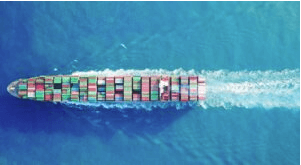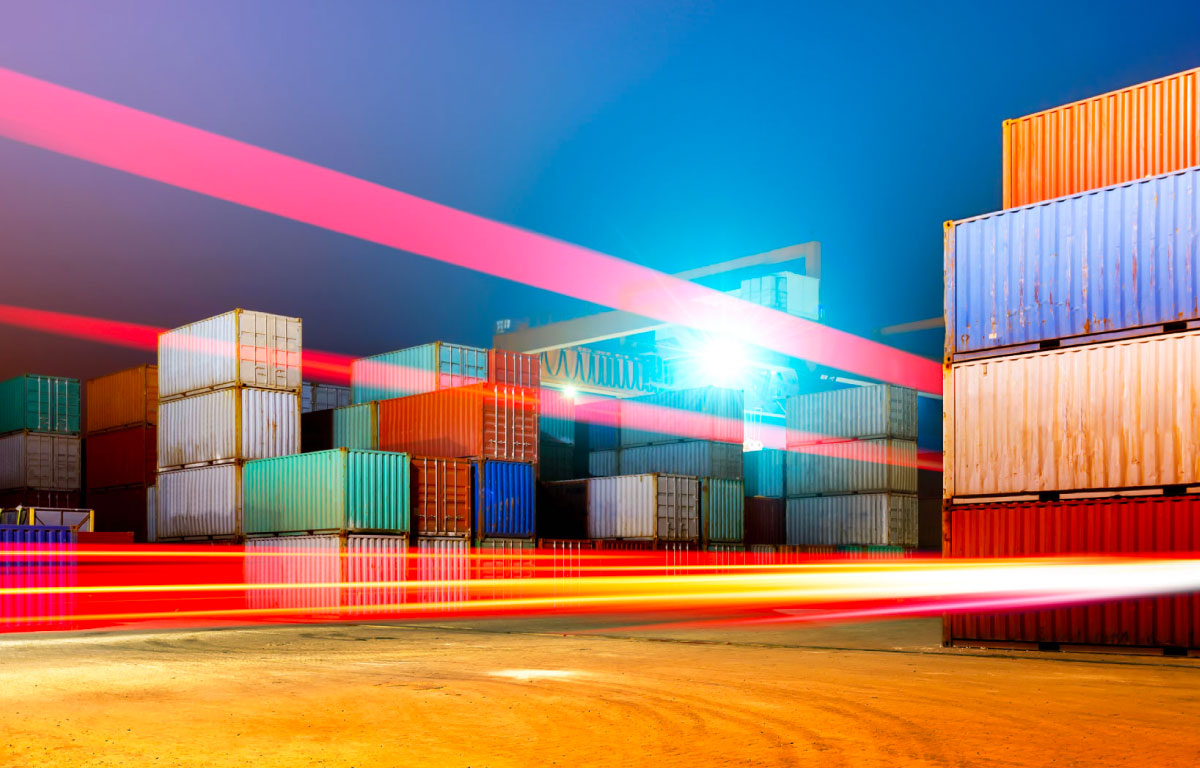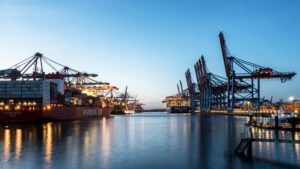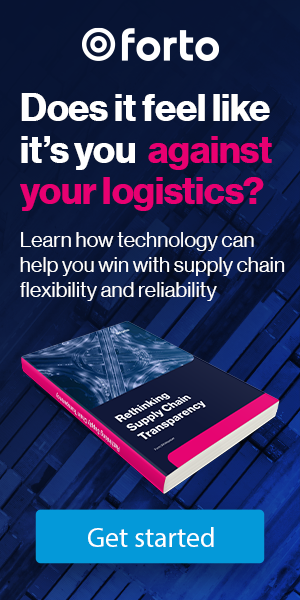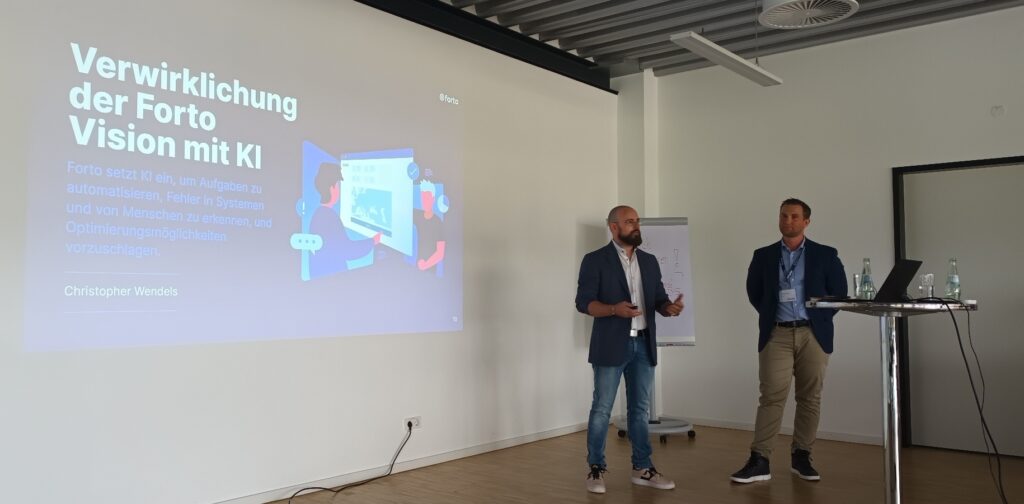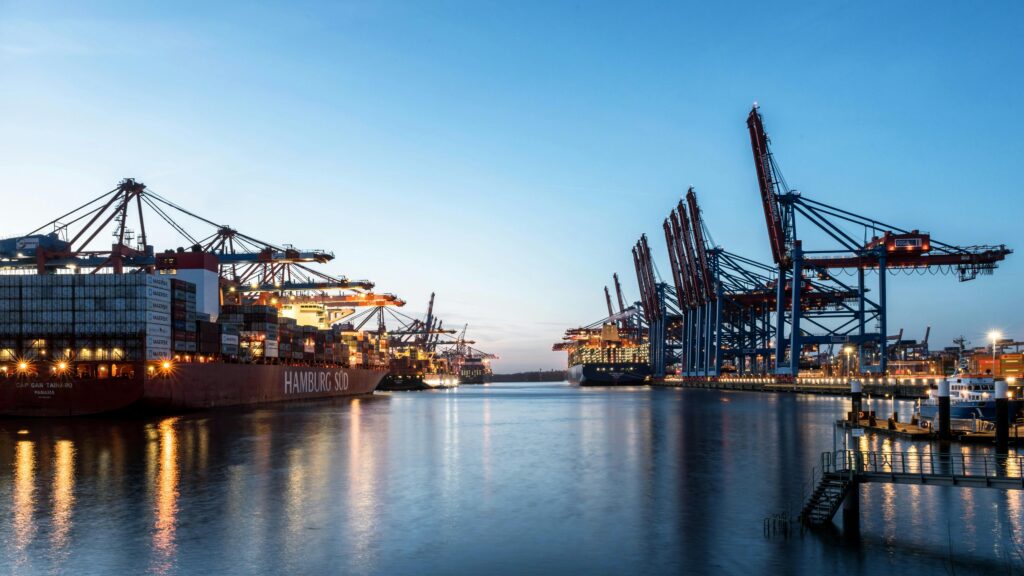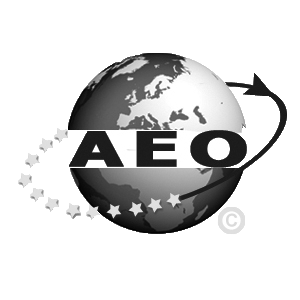Incoterms (International Commercial Terms) simplify global trade and are an important part of logistics. These trade clauses of the International Chamber of Commerce (ICC), which importers and exporters can include in their contracts on a voluntary basis when concluding contracts, regulate the transport handling for the global exchange of goods – for example, which of the contracting parties is responsible for transport by the main means of transport or customs clearance. The ICC first published the Incoterms in 1936, and they are now available in 29 languages in the eighth updated version of 2020.
The exciting thing about Incoterms: The rules do not require lengthy execution in the contract. Three letters are sufficient to specify which obligations the seller and which the buyer assume when the goods are transported from the place of origin to the place of destination. These obligations are then described in detail in the ICC’s set of rules on Incoterms. This is why Incoterms are used for around 90 percent of all goods and transport transactions worldwide.
What are the Incocterms?
There are eleven clauses in the Incoterms 2020 that allow trading partners to determine when the risk in transporting the goods passes from the seller to the buyer and who bears which costs. Seven of these Incoterms can be applied to all trade routes. The remaining four, the “blue clauses,” relate to maritime and inland waterways. In addition, the Incoterms are divided into four groups: E, F, C and D.
- The E clause states that the seller or manufacturer only provides his goods and the buyer has to take care of the transport on his own ex works or ex warehouse of the seller. This is the most seller-friendly clause.
- In F clauses, the buyer assumes the costs and risks of the main transportation.
- In the C clause, the seller assumes the costs and the risk is transferred from the moment the goods are handed over to the first carrier at the designated place of delivery.
If the parties agree on a D clause, the seller transports the goods to an agreed destination and bears the risk for the goods during the transport. D-clauses are the most buyer-friendly clauses.
Although the 2020 edition of Incoterms is the current version, the contracting parties may also refer to an older version of Incoterms in the contract. If this is their mutual wish, they must mention this version in the contract with the year of publication. If this is not the case, the current version of the Incoterms shall apply.
What do Incoterms regulate?
The Incoterms regulate the place of delivery and fullfilment of the exchange of goods within a sales contract. The main focus of the Incoterms is the regulation at which time or at which place on the transport route the risk is transferred from the seller to the buyer. The Incoterms also clarify the allocation of costs for transport and customs clearance.
A major advantage of the Incoterms is their clear wording, which is the result of the ICC’s many years of experience with all kinds of difficulties in transit. The globally recognized Incoterms thus simplify the conclusion of contracts between sellers and buyers. Moreover, since they are not a legal regulation, the contracting parties can make changes in their individual contract if necessary. However, when considering changes to the selected Incoterm clause, the contracting parties should first consider whether another clause might not better suit their needs – for example, because it allocates transport costs more fairly.
What do the Incoterms not regulate?
The Incoterms are not a contract and therefore not binding – at least not if they are not incorporated into a contract or if it is stipulated there that the transport is to take place in accordance with one of the Incoterm clauses. A contract is therefore always necessary when purchasing goods and for import or export.
The contract must also state the terms of payment and when the transported goods are to become the property of the buyer. For these questions are not regulated by the Incoterms, nor is product liability, how defects in the goods are to be dealt with or what the legal consequences of a breach of contract are to be.
Traders and suppliers can also incorporate the Incoterms into their own general terms and conditions so that they can refer to them.
Overview Incoterms
EXW (Ex Works): The seller delivers the goods from the location of his factory or warehouse, the buyer must arrange the transport (as well as customs clearance) of the goods from here and bear the costs. The risk of transportation is also borne by the buyer.
FCA (Free Carrier): The seller delivers the goods to the main carrier/forwarding agent, the buyer can also instruct a Bill of Lading with the carrier for the first time with the 2020 Incoterms. If more than one carrier is involved in the transport, the risk for the transport is transferred to the buyer from the first carrier. The costs and risks for the main transport are borne by the buyer, usually also the costs for loading. However, these can be transferred to the seller by contract. The seller is responsible for the export formalities.
CPT (Carriage paid to – Free Carrier): The seller delivers the goods to the main carrier and must pay the transportation costs to the destination. CPT applies when the destination is not a seaport. The export, transit and import and thus customs formalities are to be paid by the buyer, the buyer can take out insurance for the main transport from the place where the carrier takes over the goods.
CIP (Carriage & insurance paid to): The seller delivers the goods to the main carrier and pays the transportation costs to the destination. Export and transit are to be paid by the seller, import by the buyer. The seller must take out transport insurance at his own expense.
DAP (Delivered at place): The goods are handed over at the previously named destination on the means of transport, export and transit are paid by the seller. The costs from the point when the goods are ready to be unloaded at the named place are borne by the buyer and he takes over the import. The risks up to that point are borne by the seller.
DPU (Delivered at place unloaded): This provision is new in Incoterms 2020, previously it was called DAT (Delivered at terminal). This specifies that the risks pass from the seller to the buyer at any place where the goods are unloaded and not only at a predetermined terminal. If a buyer wants to have the goods delivered to a certain place, this place must be specified beforehand (for example, DPU Container Terminal Hamburg, the place can also be specified more precisely). The transfer of risk takes place there on the means of transport, the seller must unload. The export and transit is borne by the seller, the import by the buyer.
DDP (Delivered duty paid): The goods are handed over at the previously named place on the means of transport, the costs and risks until then are borne by the seller. The transfer of risk takes place only when the goods are ready for unloading at the designated place. Export as well as transit and import are the responsibility of the seller.
"Blue clauses" of the Incoterms for sea freight and inland shipping
FAS (Free alongside ship): The goods are handed over alongside the ship at the port of departure. The cost of the main transport is borne by the buyer, as well as the risks from the handover of the goods. Export is the responsibility of the seller, transit and import is the responsibility of the buyer.
FOB (Free on board): The goods are handed over on board the vessel at the port of departure, the seller is responsible for loading. The buyer bears the costs of the main transport as well as the risks from the handover of the goods. Export is the responsibility of the seller, transit and import is the responsibility of the buyer.
CFR (Cost and freight): The handover of the goods and thus the transfer of risk to the buyer takes place loaded on the ship at the port of departure, the cost of the main transport is borne by the seller. Export is the responsibility of the seller, transit and import are the responsibility of the buyer.
CIF (Cost, insurance, freight): The transfer of the goods, and thus the transfer of risk to the buyer, takes place loaded on the ship at the port of departure. The seller bears the costs of the main transport and must take out transport insurance (minimum insurance) at his own expense. Export is the responsibility of the seller, transit and import that of the buyer.
Overview:
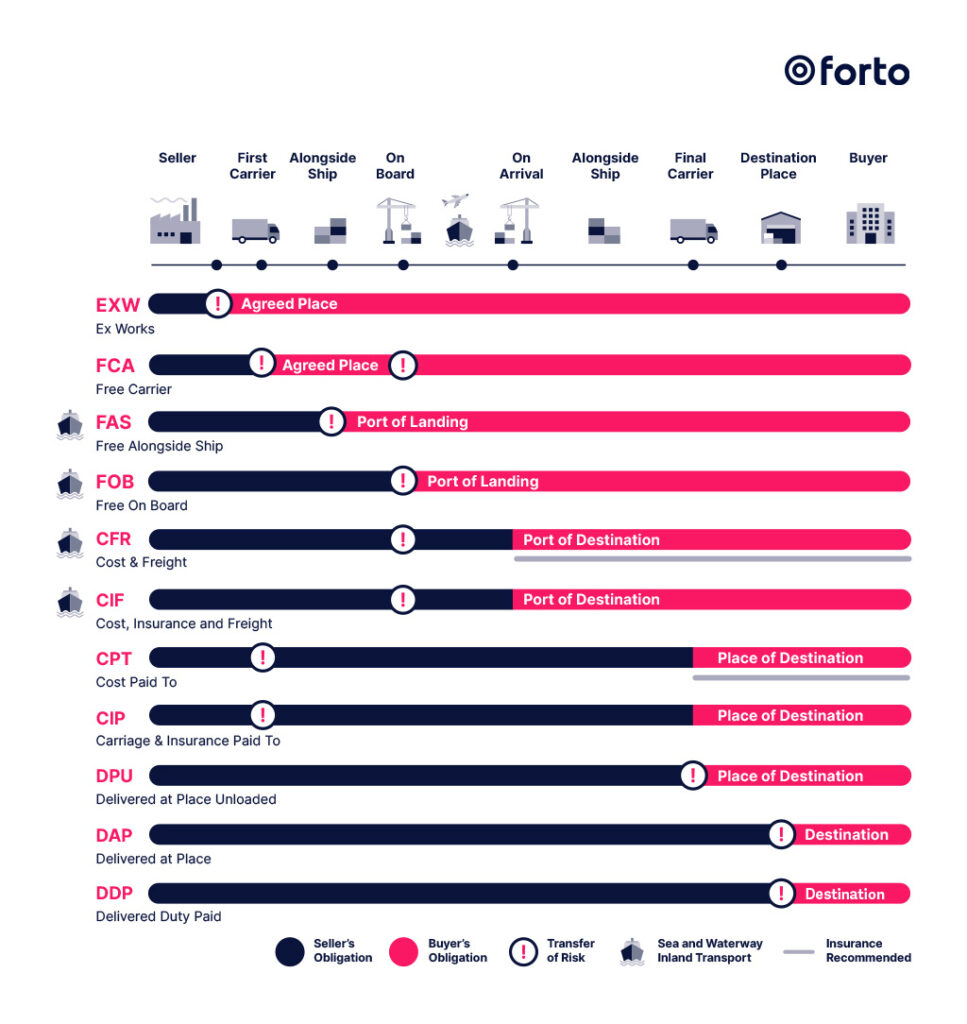
Comments and Tips
For inexperienced buyers, the Incoterms with their 200 pages of rules can be difficult to understand. Often the question arises which Incoterm makes the most sense for which freight. Negotiating with the seller/supplier about which Incoterm to choose can also be difficult. After all, some Incoterms are more seller-friendly, while others favor the buyer. Finding an arrangement here that suits both is not always easy. It can be confusing that international freight forwarders use more than one carrier on the transport route – here the question may also arise as to which Incoterm clause should be incorporated into the contract in the most sensible way.
Last but not least, the Incoterms still do not contain any regulations on the transport organization and the associated costs. Also VGM (verified gross mass, verification of gross weight for packed containers before loading onto a ship) is not mentioned in the Incoterms so far.
At Forto, we are happy to assist you in handling your worldwide shipments smoothly and cost-effectively, and to help you choose the Incoterm that is right for you. We work closely with numerous carriers, our offices around the world are familiar with local customs, and with the help of our digital platform you are always informed in real time about where your goods are in transit. Our intelligent transport management also helps you to react proactively to possible disruptions in the supply chain during transport and to change transport modes, for example. Since everyone involved in the transport has access to the platform, everyone is on the same page and exchanges are easy. Our logistics experts will be happy to advise you so that you can maintain an overview of your supply chain – even in difficult times. And, of course, on how you can successfully meet the potential challenges of Incoterms. Contact our experts!
Discussing the Future of Logistics with AI: Logistics Plus 2024
A Perspective from Forto’s Christopher Wendels This week at Logistics Plus 2024, I had the pleasure of presenting Forto’s vision and advancements in leveraging artificial intelligence to revolutionize the logistics...
Read MoreNorthern German ports are currently experiencing extensive modernization projects aimed at enhancing infrastructure and operational efficiency. These upgrades, while essential for long-term improvements, have led to repeated disruptions and delays....
Read MoreImagine this: The thrill of EURO 2024 is in full swing, your favorite teams are clashing on the field, and there’s an extra layer of excitement because your predictions could...
Read More
